Over-consumption and Diminishing Returns Part 1
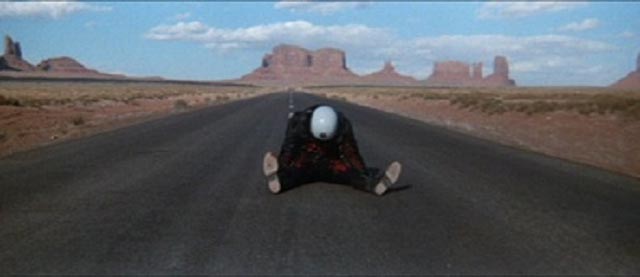
Although I know I’ve enjoyed watching movies pretty much since I can remember, I have few specific memories from childhood. It always amazes me when people have a clear recollection of “the first movie I ever saw” … I know I went to see movies fairly regularly as a child, British B-movies, Carry On films and the like, and I can recall a school outing to see Disney’s Pinocchio when I was probably six (more than the movie itself, I recall the subsequent terror of being told by the teacher to stand in front of the class and tell those who hadn’t made the trip what the movie was about), but there were no big revelatory experiences.
Small, isolated moments include: one image from (I think) Henry Levin’s Genghis Khan (1965) – or maybe it was J. Lee Thompson’s Taras Bulba (1962) – one that sticks out because there was a brief display of bare breasts (a boisterous bath scene) which caused a momentary shock of embarrassment because I was sitting there with my parents. There was the gruesome “steel mare” in Jack Cardiff’s The Long Ships (1964). Then there was the formative moment of watching Robert Day’s She (1965) with statuesque Ursula Andress as a cruelly dominant, sexually powerful anti-heroine (she was tossing slaves down a bottomless well). A few years later, I can remember seeing 2001: A Space Odyssey for the first time in St. John’s, Newfoundland, and a marathon afternoon of the first three James Bond movies with my friend from junior high, Don Sturge. (My first Bond, a few years earlier, was Thunderball in 1965, because it was the first which the British censors permitted kids to see.)
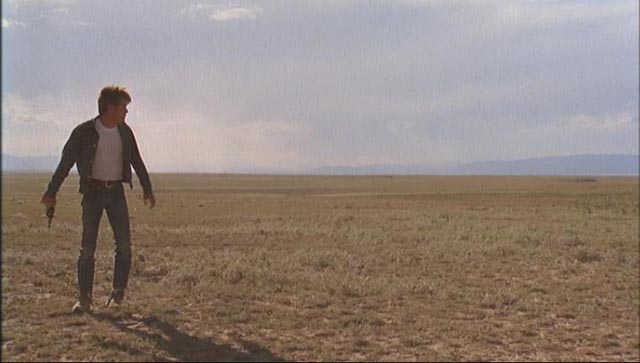
But I don’t think I started taking movies seriously until the early ’70s. Perhaps it has something to do with the age at which I encountered them (and the fact that I’d just moved to a city for the first time, with access to many theatres), but the films that started to appear with the collapse of the studios and a consequent weakening of self-censorship became the ones that defined the possibilities of cinema for me. In retrospect, 1973 was a particularly important year because I can recall seeing in fairly quick succession Martin Scorsese’s Mean Streets, Terrence Malick’s Badlands, Nicholas Roeg’s Don’t Look Now and James William Guercio’s Electra Glide In Blue. All four (which remain particular favourites) are bleak visions of life on the edges of society, and all four are infused with an exciting energy which is only possible in the medium of film. Light, sound, movement, music, the nuances of performance … all combine to evoke uniquely powerful emotional experiences.
That period, my late teens and early twenties, was generally kind of dark – I was angry and depressed much of the time, and so perhaps particularly susceptible to those movies. The heroes usually died at the end and that played into my own sense of hopelessness: probably the first film to hit me that way was Easy Rider (1969). (I didn’t see Bonnie and Clyde or The Wild Bunch until years later, but they would have fit my mood perfectly.) Of course, I did still enjoy comedies (I couldn’t say how many times I went to see Monty Python and the Holy Grail [1975]), but I was clearly drawn to movies which left me feeling emotionally battered. Altman was good at giving me those final kicks – from 1970 to ’74, one after the other he made Brewster McCloud, McCabe and Mrs Miller, Images, The Long Goodbye and Thieves Like Us – all death-haunted; in 1975 there was Arthur Penn’s brilliant and underrated Night Moves; and in 1971, Peckinpah’s Straw Dogs and Russell’s The Devils … I loved movies that fed my seemingly innate nihilism by emphasizing the pointless futility of existence.
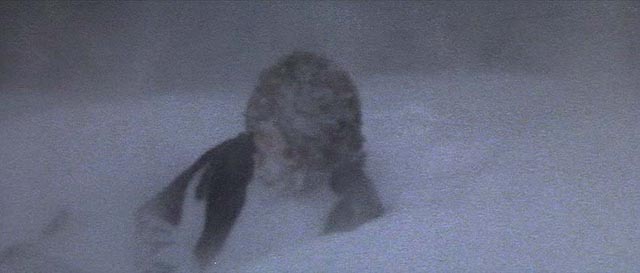
*
The reason I’ve been thinking about this recently is a series of emails I’ve been exchanging with my friend Gord Wilding, an artist and production designer whose passion for film equals my own. He initiated the exchange by simply listing a number of his favourite documentaries – films by the Maysles Brothers, Steve James, Chris Marker, Agnes Varda, Werner Herzog, Ross McElwee, Joe Berlinger, Chris Smith, Spike Lee and Andrew Kotting – and asking me if I had any additional suggestions.
I like everything on his list, but immediately thought of others that also excite me: Michael Apted’s 7-Up series, of course; Errol Morris’s work, particularly his masterpiece Fast, Cheap & Out of Control; Wang Bing’s West of the Tracks; Marcel Ophuls’ The Sorrow and the Pity and Hotel Terminus; Hans-Jurgen Syberberg’s monumental Our Hitler and Winifred Wagner; Alexander Sokurov’s Spiritual Voices; and the radical Japanese works of Kazuo Hara (The Emperor’s Naked Army Marches On, Goodbye CP) and Mori Tatsuya (A and A2, an inside view of the Aum Shinrikyo cult).
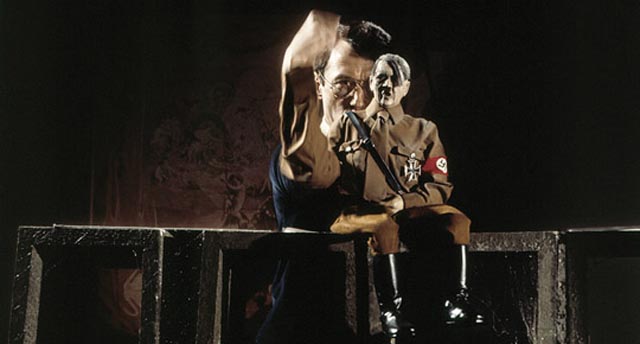
GORD: Someone should talk about a world where no stone is left unturned in the obscure film canon and the fleeting nature of film-watching has turned in on itself. We have unlimited access, so the nature of one’s connection becomes tenuous. The need to engage at the first screening (may be your last) has gone by the wayside; everything has become (relatively) easily accessible and certainly less special.
As he suggests, our “movie consumption” has been changing in the past few years (or decades). As someone with chronic insomnia, he’s been in the habit of watching and re-watching movies many times over (my own re-watching has been more limited because my obsessive collecting means there are always numerous new films to watch). But of course, in the pre-home video days, this constant re-visiting wasn’t possible. We had to hold a film in our memories rather than on a shelf, reconstructing it in our minds rather than simply popping it into a player and letting it unreel in front of our eyes for the nth time. And, of course, that process could often change and distort a movie, bending it to fit our own moods at the time of watching and later as we revisited it in our minds. We’ve all had that experience of seeing something again years later and discovering that it’s nothing like our memory of it. Before video, we possessed movies as subjective experience rather than as external objects.
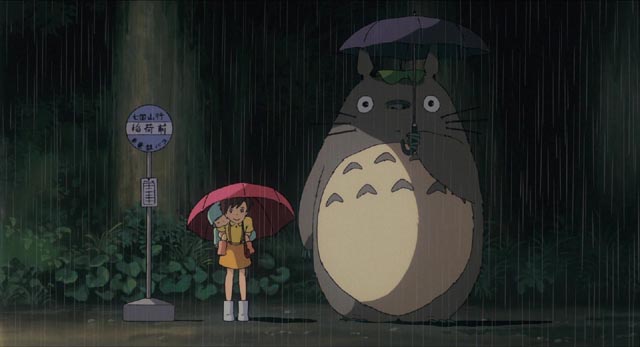
Gord’s next email was a more extensive list of some five dozen movies which had had a “fundamental and lasting” personal influence on him: a remarkably eclectic selection ranging from Hayao Miyazaki’s My Neighbour Totoro to Ingmar Bergman’s Fanny and Alexander, from Jia Zhangke’s Still Life to Takashi Miike’s Ichi the Killer, Woody Allen to Andrei Tarkovsky to Paul Thomas Anderson, plus many of Peter Greenaway’s films (a particular favourite of his). There are a number of Eastern Europeans to whom I introduced him: Frantisek Vlacil (Valley of the Bees), Bela Tarr (Werckmeister Harmonies, Satantango), Andrzej Zulawaski (On the Silver Globe). Also David Lynch, the Coen Brothers, Richard Linklater, Robert Altman, Wes Anderson, Gus Van Sant, David Fincher and Lars Von Trier.
GORD: I am trying to remember the things that are influences. I feel it is all slowly slipping away. I worry that the things that interested me are disappearing and being replaced by a website of the month.
It all seems very scattered but I am trying to remember the things that were important to me and retain the feeling that was there when they happened.
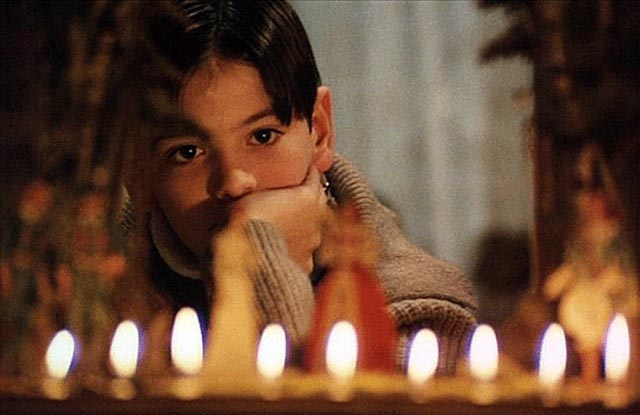
I think this points to the heart of “the problem”: we’re exposed to so much more stuff now, from so many directions, that what we used to carefully store away in our memories is becoming swamped by new input. But that new input doesn’t require the careful processing, the effort to comprehend, which movies once demanded. In fact, I sometimes find it hard to recall what I watched last week when I slumped down in front of my TV after a tiring day at work. I used to be able to recall films in remarkable detail, but quite often now I’ll recall a particularly vivid scene but find it impossible to remember what movie it comes from. What we’ve been doing for decades now, as technologies rapidly develop, is externalizing our memories; whether consciously or not, we’ve come to rely on our electronic devices to do the remembering for us and in the process we’re losing the ability to retain a coherent internal record of our experiences and thoughts.
GORD: Now it seems things are all coming at me very quickly and the effort to process it is too much work, that it is easier to move on to something else instead of considering the thing I am looking at/reading/painting/watching …
ME: I know just what you mean … I try to force myself to do some more serious viewing, but most days I just feel too tired or listless and end up watching an action film or something …
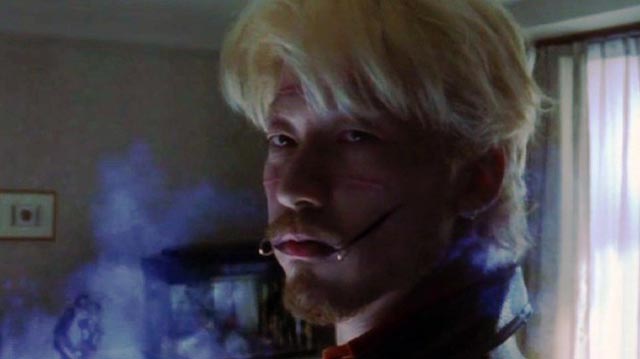
GORD: I don’t watch an action film but I do find myself distracted by a lot of things when I am watching a “serious” movie. The slightest thing will distract me. I can’t watch a movie at my computer because the opportunity to go online is too distracting. I have to force myself in front of my TV and sit down and watch it, forcing myself to look at it. I turn off the lights and shut down the fish tank and pray the kids don’t get up.
I discovered this very seriously while watching the Alien movies over a few nights. The first one, I sat there and watched, no distractions, really engaged and interested; #2 I wasn’t liking it and was very unengaged and getting pissed off; #3 back to being engaged and #4 I was lost and bored.
[But] I popped on Fanny and Alexander the other night and suddenly it was 4:30 in the morning and I was right in it, all the way through. Same feeling I had coming out of Cinema 3 on Ellice the first time I saw it. I am waiting for that moment again to put in Eraserhead.
I think it’s a combination of getting old and having too much stuff coming in. I think I am not hard-wired for all the info, media, etc, I take in in a day through DVD, Netflix, internet, so I rush through these things and don’t take them in, losing the essence of what attracted me to this stuff in the first place. So I may as well be watching Dukes of Hazzard reruns from my teen years for all the good I glean from this stuff.
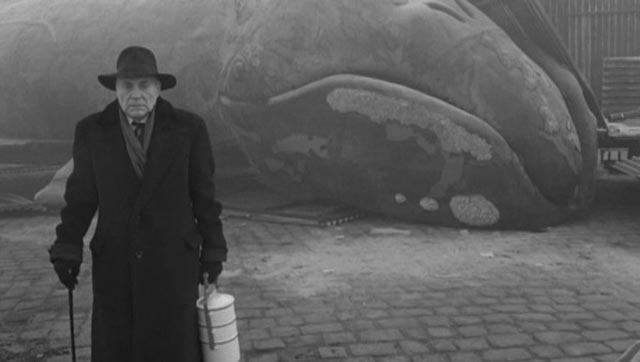
ME: Yeah, too much distraction is a big part of it … and just having access to too much stuff all the time (it’s ridiculously counter-productive having a collection like mine: I have about 9000 movies to choose from right in my living room) … also, just sitting alone watching stuff — I find it a lot easier to watch something serious when someone comes over, which gives me a chance to talk about the movie instead of just consume it in passing … guess that’s why people used to form film clubs; sitting home alone you totally lose the social aspect of movie-watching …
GORD: I never enjoyed the social aspect of film watching. I ALWAYS wanted to be alone. The movies I’ve watched, both in theatres and on a TV, have been enjoyed alone, even the big important ones. The experience has always been solitary and talking about it afterwards has always left me cold, like I was trying to re-experience it through talking about it. It paled in comparison. It’s like looking at a painting in a gallery – the last thing you want is to hear someone else’s thoughts. The experience is pretty non-verbal if the film or painting is doing its thing, so … nothing to say.
ME: I think I prefer to watch “serious” films with someone because it kind of forces me to pay attention and then talking about it helps to fix it in my mind …
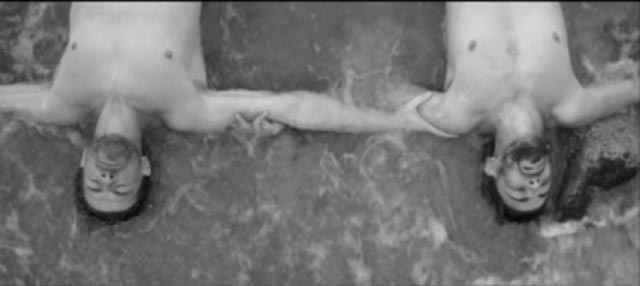
But re-reading my last comment, I realize that this certainly wasn’t always true. In fact, like Gord, I used to love being alone in the theatre, just me and the images up on the screen … as someone once said, movies are dreaming with your eyes open; they unfold inside your head. Of course some things are energized by an audience (a good comedy is a lot funnier when shared), but those films I mentioned above, those dark, intense dramas, are places best visited alone. One of the things which triggered my obsession with Eraserhead thirty-three years ago was the way in which David Lynch’s use of sound and image somehow isolated each member of the audience in their own head: it becomes your own dream (or nightmare).
I still love movies that have that power over me (most recently Paul Thomas Anderson’s The Master), but the truth is I don’t often seem to have the patience to let it happen. Or, as Gord points out, movies are now too easily accessible. I don’t have to make an effort to see something; I can just pull it off the shelf and slip it into the DVD player, or call it up on-line. Perhaps we’re conditioned not to value things that come without any effort.
To be continued …
Comments
Perhaps you’re both right, or both wrong, or both partly right and wrong, or wrong and right. Actually your dialogue is fun and fine. You two should consider doing it more – maybe become the next Roger and Gene.
Of course we know the all time greatest movies include : 20 Thousand Leagues Under the Sea, A Man for All Seasons, Butley, Heavenly Creatures, and The Visitor.
Regardless, hallways yearn for self-portraits and cinemas yearn for thoughtful documentaries (as library copies of The Sopranos gather dust).